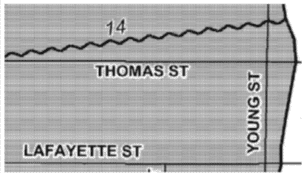Letter to Representitives RE: Water’s amendment to reduce repetive flood insurance claims
July 7, 2011
RE: Waters’ amendment to reduce repetitive flood insurance claims
Dear Representative:
When H.R. 1309, Flood Insurance Reauthorization and Reform Act, is considered on the House floor later this week or early next week, Representative Maxine Waters will offer an amendment to improve the Severe Repetitive Loss program. This is a fiscally sound amendment to reduce unnecessary losses from the National Flood Insurance Fund due to repetitive flood loss claims for the same properties.
The last major flood insurance reform legislation was passed in 2004 and included a three part initiative to address repetitive loss properties through mitigation of their exposure to flooding or through buy-outs. All three components were funded by transfer from the premium and policy fee income of the National Flood Insurance Fund. This was an investment of Fund dollars to reduce a drain on the Fund. Since the NFIP has a debt to the Treasury of approximately $18 billion, it is essential to reduce unnecessary claims.
Repetitive loss claims cost the Fund an estimated $200 million per year. The initiatives to address this problem were: 1) making repetitive loss claims a priority under the Flood Mitigation Assistance program (FMA) with authorized transfer of $40 million, 2) creation of the Severe Repetitive Loss pilot (SRL) with authorized transfer of $40 million to focus on the losses most cost effective to the Flood Insurance Fund, and 3) the Repetitive Flood Claims (RFC) program with authorized transfer of $10 million to allow the FEMA Administrator to deal directly with mitigation of repetitive loss properties when a community or state indicated that they are unwilling or unable to address a repetitive loss problem.
The Severe Repetitive Loss program proved to be excessively cumbersome for communities and states to administer, so has not been effectively utilized. At a recent floodplain management conference, a FEMA presentation included the question, “What hazard mitigation program is the hardest to use, but could have the most impact?” The answer was the Severe Repetitive Loss program.
Representative Waters’ amendment would simplify administration of the SRL program by moving it and the RFC program under the umbrella of the Flood Mitigation Assistance program.
Given that flood losses in the nation are increasing and that flooding is our most frequent and most costly form of disaster, it is critical that we do a better job of mitigating those losses and especially in cases where the same properties flood repeatedly. Due to the cumbersome aspects of the SRL program, there is an unobligated balance of approximately $100 million in the National Flood Insurance Fund which must be put to work for its intended purpose of reducing flood losses.
Representative Waters’ amendment is a fiscally responsible and important improvement to the National Flood Insurance Program.
With respectful regards,
Sally McConkey, ASFPM Chair
CFM Larry Larson CFM , ASFPM Executive Director


